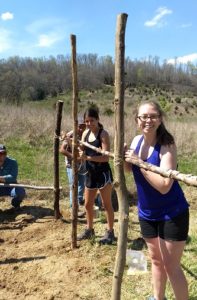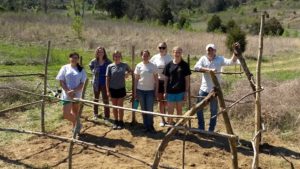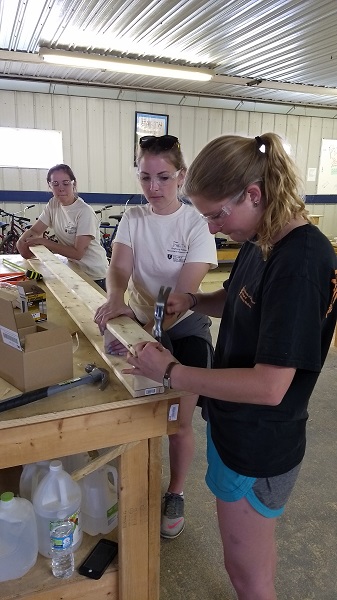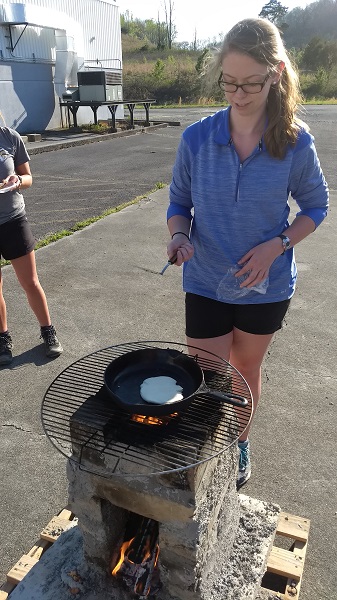
Most of us have eaten tortillas, but do we know how to make one using traditional methods? On April 11th, the UTIA International Student Ambassadors and three interns from Zamorano University, Honduras visited East Tennessee State University (ETSU) College of Public Health to take part in the Tortilla Experience. Hosted by Dr. Mike Stoots and Dr. Randy Wykoff, Dean of the College of Public Health (ETSU), CASNR students partnered with ETSU students to simulate traditional methods of making a corn tortilla… starting from seed (and using a bit of time-lapse). From clearing and tilling the ground, to planting seeds, to building fences, to making bricks for the oven, to grinding the kernels, and finally, frying the tortillas, the simulation was first developed two years ago by ETSU faculty to demonstrate the time and effort involved in food production in low-income countries.

After the student teams spent about four hours completing these problem solving, physically-intensive activities, Dr. Stoots informed students, “You produced about 90 calories [with this tortilla]. You spent about 500-600 calories.” Undergraduate Megan Wright noted the ‘learning-by-doing’ aspect made the experience “more rewarding and definitely added to the teamwork… [we were] not just talking, but getting something done within a time-limit.” Undergraduate Savannah Blackman commented, “I’ve never had this type of experience before… it would be useful for other UT students and also faculty and staff.”
This activity was part of a developing partnership between ETSU’s College of Public Health and UTIA, focusing on student learning in the areas of global public health and agricultural production. Located just 1.5 hours from Knoxville, the facilities at ETSU’s Valleybrook campus host a variety of real-life learning activities, which they group and label Project Earth. As ETSU prepares its public health students to engage in low- and middle- income communities around the world, UTIA International Programs also sees the value this and other simulations have in preparing CASNR students to engage with communities domestically and internationally.


